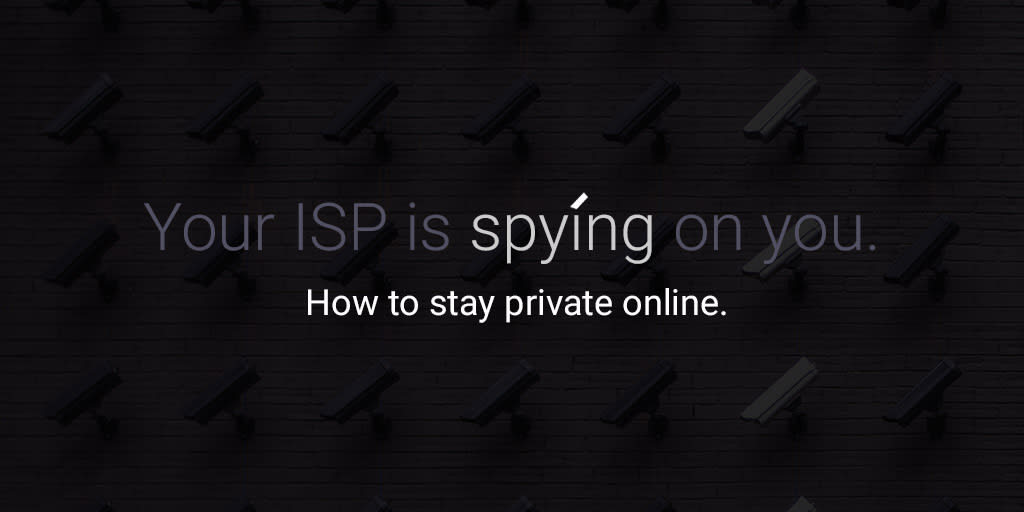Updated on January 31, 2019
Thanks to the passage of S.J.Res.34 in 2017, Internet service providers can sell and share users’ browsing history with advertisers. Here is our analysis of this law and the steps you should take to protect your privacy.
US lawmakers voted in favor(new window) of allowing Internet service providers (ISP) like Verizon, Comcast and AT&T to sell and share customers’ browsing history for advertising purposes. This is a major breach of browsing history privacy. This resolution was passed by Congress and signed into law by President Trump on April 4, 2017.
How did we get here?
The Internet today is largely driven by advertising, and the fuel that powers this multi-billion dollar industry is personal data which allows advertisements to become more and more targeted. Together, companies like Google and Facebook make over one hundred billion dollars per year(new window) by selling access to the insights gleaned from personal data such as search history and private email communications.
Previously, privacy regulations set by the Obama-era Federal Communications Commission (FCC) made it impossible for ISPs to violate customer privacy and sell browsing history to advertisers without explicit customer consent. To bypass these regulations, the US telecom industry directly lobbied 24 US senators, including contributing over $2.2 million(new window) to their re-election campaigns. As a result, Senate Joint Resolution 34 (S.J.Res.34(new window)) was introduced, passed, and signed into law.
What does this mean for online privacy?
An ISP is a company that provides you with web access. ISPs can see everything you do and every website you visit since they own the internet infrastructure you are using. This means the amount of the data ISPs have on users is much larger than what search engines or social networks like Google and Facebook collect. Whether it’s Facebook, New York Times or a website that you visit in secret, your ISP has a record of all of your browsing history.
Since S.J.Res.34 became law, this highly personal and intimate data can be sold to the highest bidder, who can use this data to show invasive advertising that will pry into our private lives like never before. Even worse, no customer consent is required to do this, so your data can be sold without your permission.
How can you protect your browsing history privacy?
Because the legislation does not require ISPs to get your consent before providing your browsing history to advertisers, there is nothing you can do to opt-out of this privacy violation. Not using an ISP is also not a realistic proposition, as that is equivalent to not using the Internet. However, there are several things that can be done to make sure your private browsing activity stays private.
Use a VPN
The best way to prevent your online activity from being collected by your ISP is to use a Virtual Private Network (VPN). A VPN will shield your browsing history from the prying eyes of your ISP by encrypting and routing your Internet traffic through a private server. This makes it impossible for your ISP to monitor your browsing activity. Proton VPN(new window) has a strict no logs policy to make sure that your online activity remains private. We also offer a free VPN service so that everyone can have secure and private access to the Internet. For more information about VPNs, see our article about choosing the best VPN service(new window).
Don’t use email provided by your ISP
Your ISP likely provides you with a free email address (such as rr.com or comcast.net). Giving your ISP your browsing history is bad enough, don’t also hand over your personal email data. Going to an email provider like Gmail also isn’t a solution because Google may be even worse when it comes to your privacy(new window). However, Gmail alternatives such as Proton Mail are much different.
Because Proton Mail utilizes end-to-end encryption(new window), we don’t actually have the ability to read your emails, and therefore cannot sell your data to advertisers. Instead of paying with your privacy, Proton Mail is supported by paid users, which allows us to put your privacy first.
Lastly, if you are a US voter who is disturbed by this new legislation, you can also contact your Congressman or Senator to voice your objection. Now more than ever, it is important to oppose efforts that have put commercial interests ahead of privacy rights.
You can get a free secure email account from Proton Mail here(new window).
Proton Mail is funded by community contributions. If you would like to support our development efforts, you can upgrade to a paid plan(new window). Thank you for your support!














